National Trust, English Heritage and the truth about their profits from slavery
Many of Britain’s wealthiest families received billions in compensation for their loss of income when the slave trade was outlawed, writes David Barnett

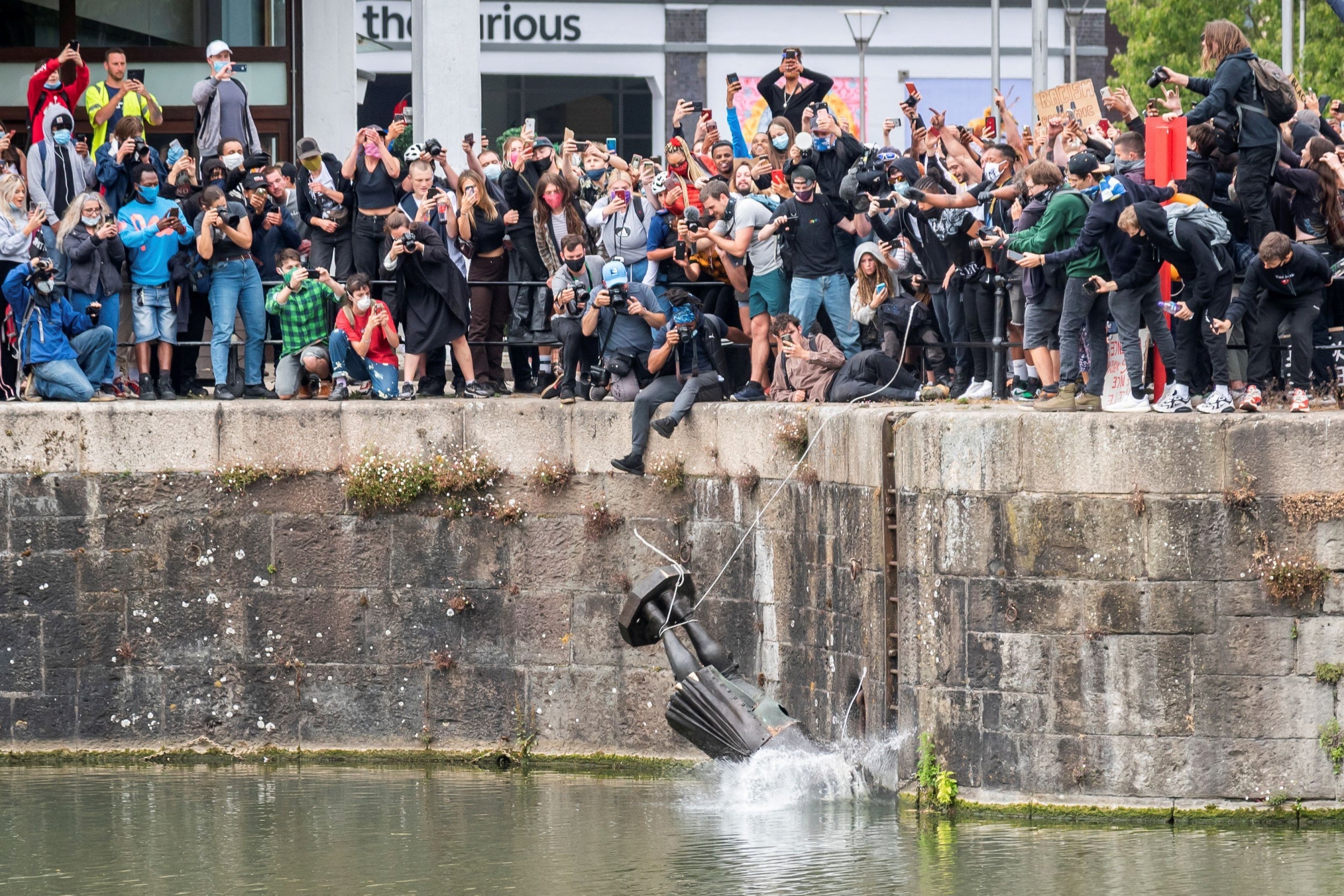
Britain is waking up to a part of its history that has been standing in plain sight for all to see, and yet not often thought about by many people. But the country’s involvement in the slave trade has been brought into sharp relief with the pulling down of the statue in Bristol of Edward Colston and its dumping into the harbour.
Colston, though viewed as a benefactor of his city, was heavily involved with the slave trade in the Caribbean in the 17th and 18th centuries, and riding a wave on the back of the Black Lives Matter protests that began in the wake of the killing of George Floyd in America, attention was turned on the public monuments that honour those who made their reputations and fortunes on the back of the traffic in black people. The disquiet at Colston is nothing new, of course. There has been a long-running campaign to either get the statue removed or have some kind of qualifying plaque placed upon it to qualify his supposed philanthropy with the darker deeds on which it was built.
And it isn’t just about statues. Although it’s not something we often learn about at school, colonial slavery helped to build the country we live in today. And for more than a decade the Legacies of British Slave-Ownership (LBS) project at University College London has been minutely detailing all the business done by British individuals and companies in the trade of human beings 200 years ago.
It’s against this backdrop of social change that Matthew J Smith takes up this week the directorship of the LBS project. Smith is from Kingston, Jamaica, and has been an historian of the Caribbean for almost two decades. He previously taught in the department of history and archaeology, at the University of the West Indies, in Jamaica, which is also where he studied history as an undergraduate.
The LBS mission statement says: “Since we began this project in 2009 our aim has been to explore and document some of the ways in which colonial slavery shaped modern Britain. One very important means by which the fruits of slavery were disseminated was through slave-owners, with wealth derived from ownership of enslaved women, men and children and, at the point of abolition in 1833, as beneficiaries of compensation from the British state for the loss of their ‘property' in the Caribbean.”
This is something that only really came to light seven years ago when the project unveiled previously unseen records that showed Britain’s wealthiest families received compensation worth, in today’s money, several billions of pounds for their loss of income from the now-outlawed slave trade.
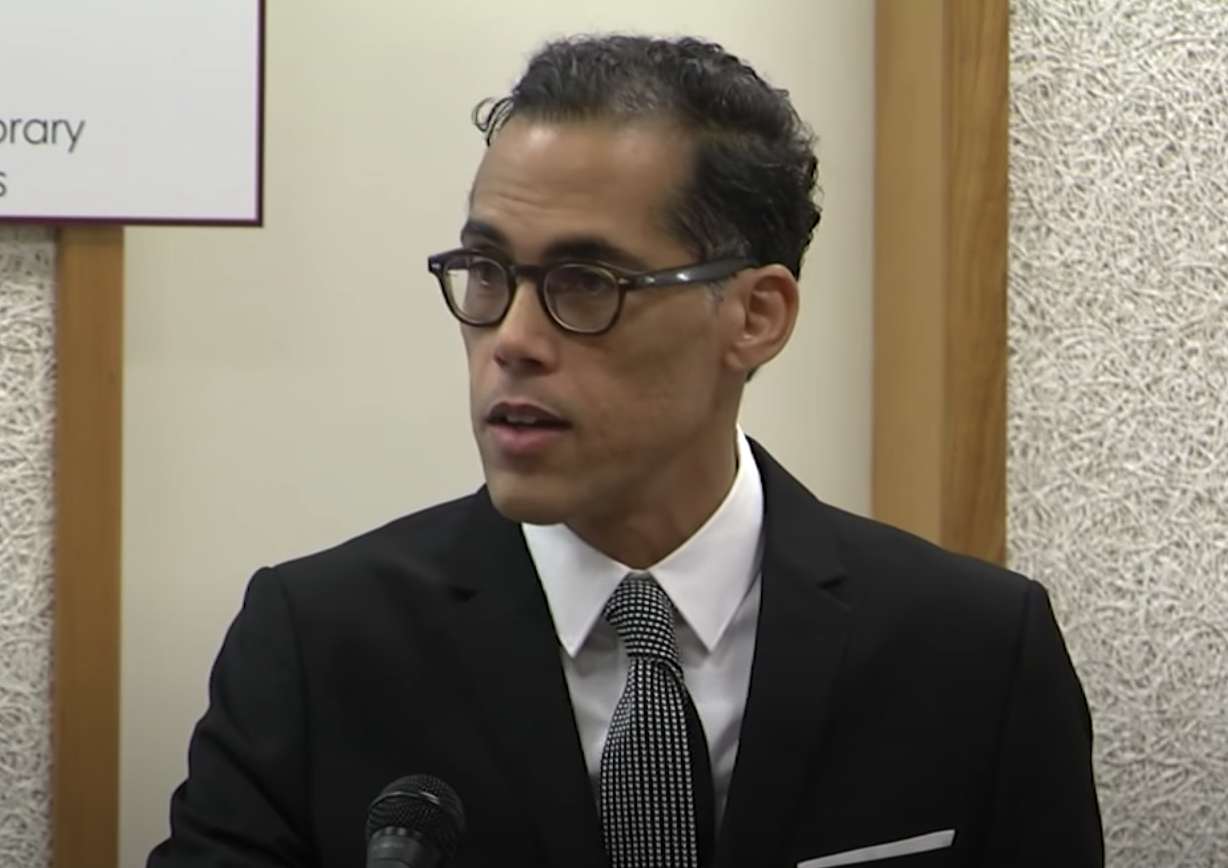
Smith is acutely aware, of course, of the global discussion around race that is at the top of the agenda right now. And he sees the work done by the LBS in researching and analysing the economic, social and political legacies of slave ownership as vital in informing the way we tackle the future.
“I am deeply mindful that my directorship begins at a time of intense transformation around the world,” he says. “The Covid-19 pandemic has had considerable consequences for all of us. It has brought into high relief our responsibilities as global citizens and also the uneven distribution of resources among countries and social groups.
The anger, pain, and determination for meaningful and symbolic change that Floyd’s death has sparked among communities from Minneapolis to Mexico, demands a reinvigorated discussion
“Lower- and middle-income countries have battled valiantly to protect their citizens against the virus. We cannot ignore the disproportional impact of the virus on black and other ethnic communities in the UK and elsewhere. These shocking data have impelled serious consideration of the ways current health crises reflect larger historical legacies of oppression.
“Against that backdrop we have experienced the eruption of a global protest movement in support of the human rights of principally black and minority ethnic populations. The ignition of this activity was the recent horrific murders of unarmed black US citizens climaxing with the brutal killing of George Floyd by police officers in Minneapolis on 25 May.
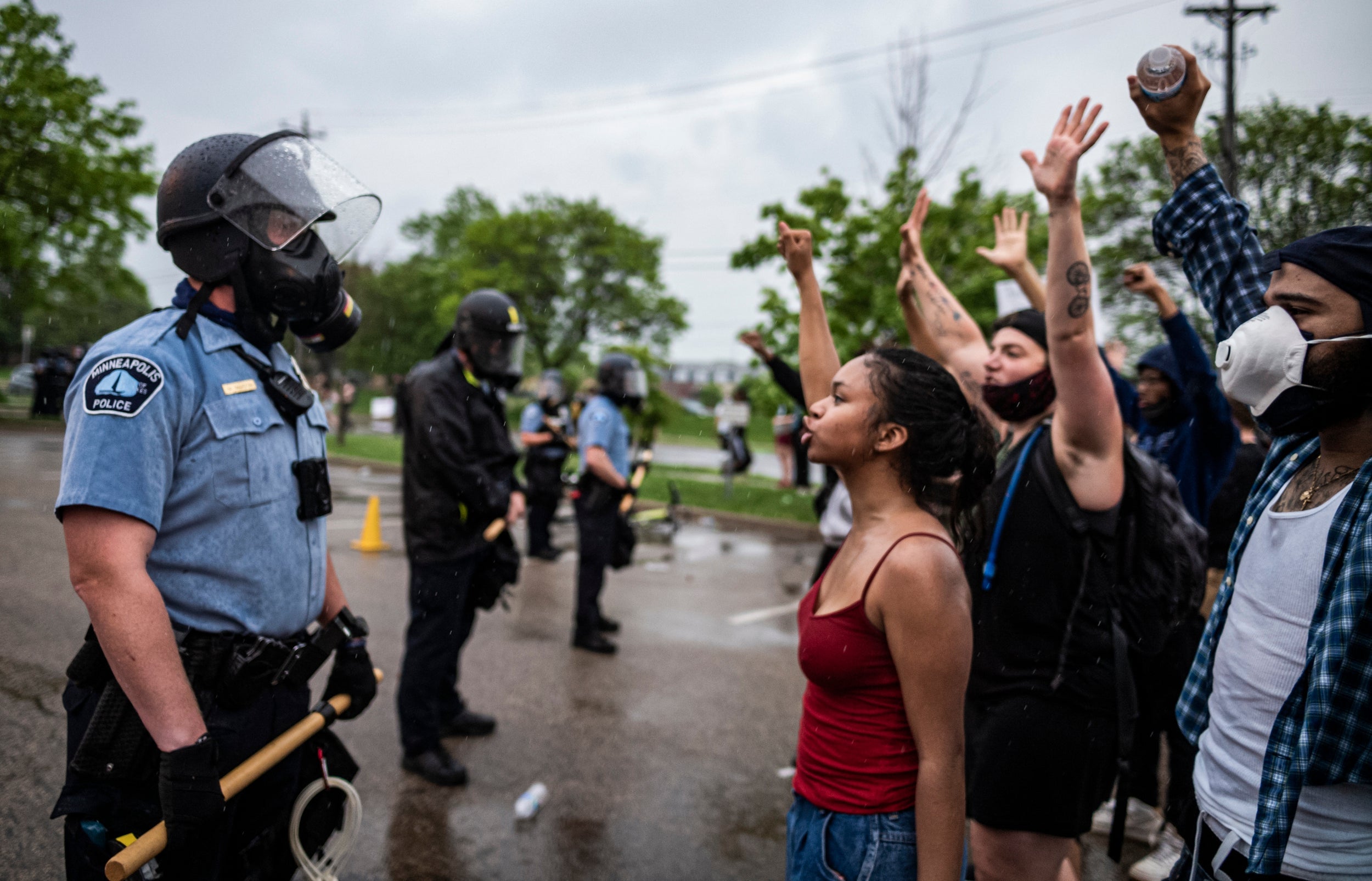
“The anger, pain, and determination for meaningful and symbolic change that Floyd’s death has sparked among communities from Minneapolis to Mexico, demands a reinvigorated discussion on racism and the powerful injustices that have defined humankind for centuries. It is both the brutality of racial violence and the everyday pressures of racial prejudice on Black and minority ethnic people that must be confronted.”
What is key to the debate, says Smith, is drawing a direct line between what happened in the past with what is happening today. "At the heart of this discussion is the legacy of the bondage of Africans and their descendants who have for centuries been unfairly and violently marginalized. Awareness of this fact has provoked public action that reaches far into the past.
“Recently, the toppling in Bristol of the statue of Edward Colston, a notorious trader of enslaved Africans, underlines the historical import of these events. Many of the threads of the international protest are part of a longer project of reckoning with the legacies of forced labour and abuses of Africans and their descendants.
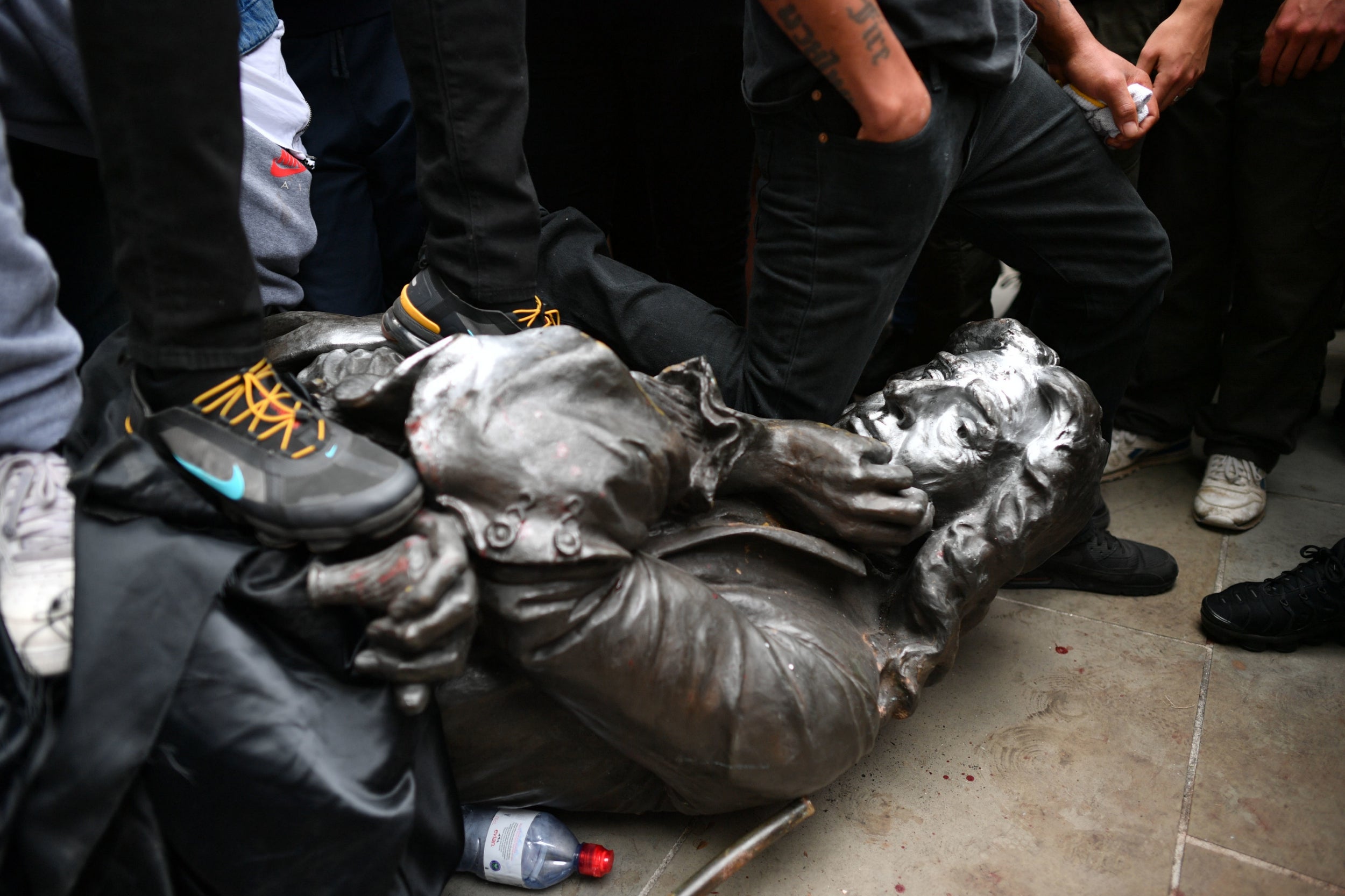
“It has been our mission to encourage a fulsome understanding of what centuries of black enslavement has meant for nations, societies, and peoples. The shadows of the history of slavery follow us all.
“The present moment demands that we maintain active and informed dialogue on the roots of that history and its manifold endurances. This is an unshakeable aspect of the intellectual commitment of the work of our centre, and one that we intend to advance through new research, public engagement, and activities with our community of collaborators within and outside the UK.”
The fact is that those families who received reparation for the loss of their slave trade still thrive and exist today, and in many cases their homes are often the large stately homes we visit in droves (pandemics notwithstanding) every year.
We condemn racism in all its forms, we believe that black lives matter, and we commit to tackling how Harewood shares and confronts the past
One of those is Harewood House, near Leeds, still owned by the Lascelles family, which is named in the project’s database (among 61,000 individuals) as owning or profiting from slave ownership at the height of the trade. David Lascelles, chair of the trustees at Harewood House, says that rather than try to hide the ignoble past of the family, they are instead facing it head on.
He says: “We recognise the colonial past of Harewood House, which was created using the historic wealth of the Lascelles family, garnered from the West Indian sugar trade of plantations, enslavement of people of colour and ownership of ships and warehouses.
“Today, Harewood House is an educational charity set up to share Harewood’s story, to listen, to learn, and to enrich people’s lives using our collections, surroundings, and our history as means of creating a better society today.
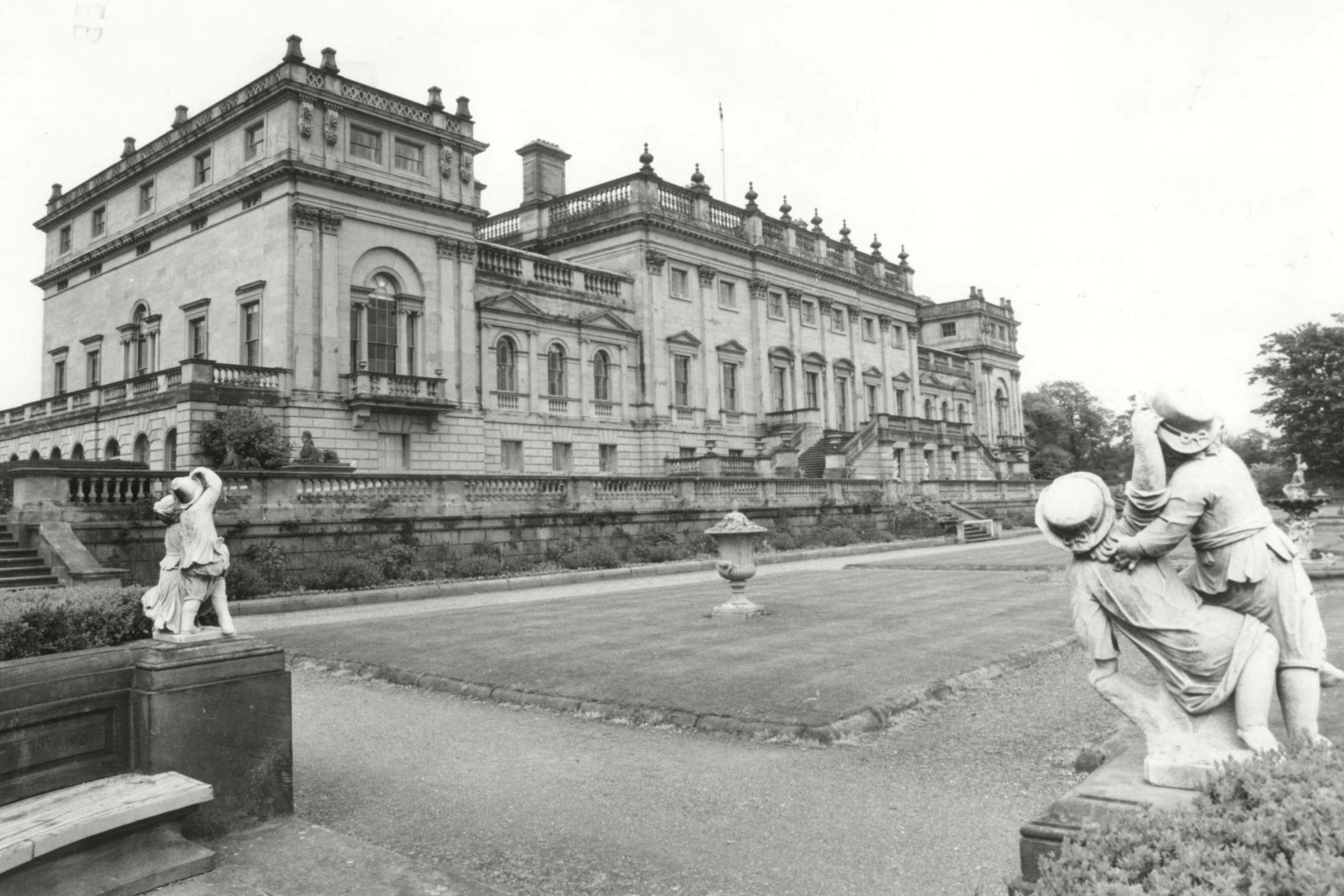
“We condemn racism in all its forms, we believe that black lives matter, and we commit to tackling how Harewood shares and confronts the past, and to question what that means for communities today. Harewood cannot change its past, but we can use it as a stark, unequivocal truth to build a fairer, equal future.”
For Harewood, that means not just acknowledging the past but also aiming for proper representation from Bame communities in terms of staff, volunteers and visitors, and also “not shying away” from the fact that Harewood’s money was built on slavery.
He adds: “We are collaborating on artistic projects and partnerships that shine a light on Harewood’s past, not shying away from its history but celebrating the positive activity that has grown out of this legacy
Statues can offend but we cannot support deliberate damage to historic monuments. We believe that the best course of action is to provide as much information as possible
“Iconic projects of the past, such as Leeds-based teacher and musicologist Geraldine Connor’s Carnival Messiah, sit alongside supporting the digitisation and making accessible the West Indian Archives in the Borthwick Institute of Archives at the University of York, and at the University of the West Indies in Barbados and the Barbados Museum. The Lascelles family was pivotal in setting up the community and performance-focused Geraldine Connor Foundation, and Harewood Contemporary has supported artist residencies and projects such as Sonya Boyce, Sokari Douglas Camp and most recently Frank Walter’s Flamboyant Trees, opened by Leeds Carnival founder Arthur France in 2017.
"We acknowledge that there is a long way to go, that there is much to understand about Harewood’s history, and that there is much to undertake for Harewood to fully represent its community.”
For two of the country's biggest organisations dedicated to protecting and promoting Britain’s history — the National Trust and English Heritage — the ongoing growing awareness of Britain’s slave-trade past and the more recent issue of direct action against monuments and statues means they, too, are taking an active role in the issue… and in trying to redress the imbalance in public memorials to take into account Britain’s diversity and recognise the darker moments of history.
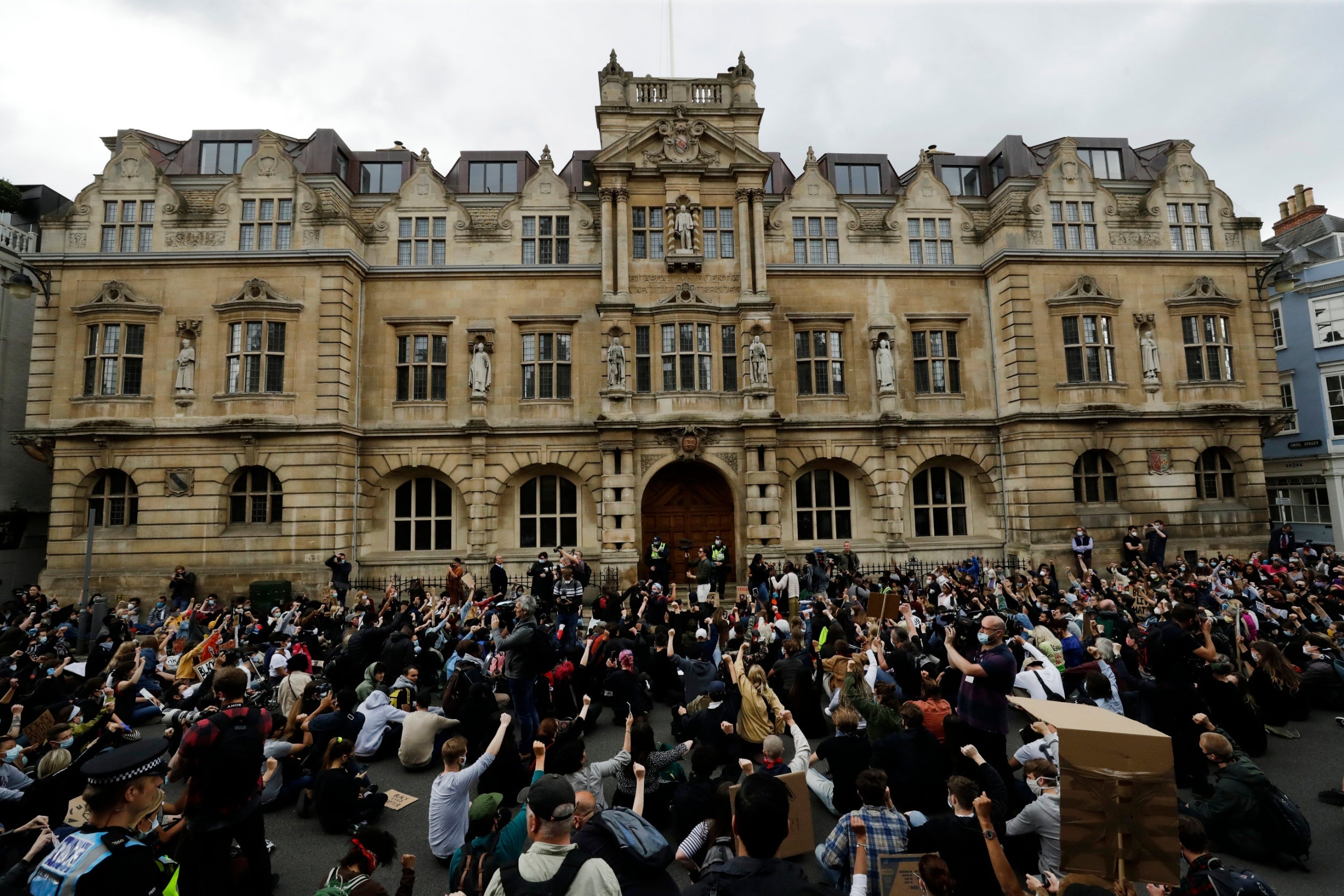
Anna Eavis, English Heritage’s curatorial director, says: “English Heritage looks after a number of statues in London and we need to ensure that the actions and the legacies of those commemorated are told in full.
“Statues can offend but we cannot support deliberate damage to historic monuments. We believe that the best course of action is to provide as much information as possible about these monuments – their history and the context in which they were erected – and encourage debate and reflection on the sometimes painful issues they raise.
“With the London Blue Plaques scheme, we have made real progress to better recognise those groups who have been traditionally unrepresented in history, including the black community. Now with the statues in our care, we need to ensure that the stories of those people already commemorated are told in full, without embellishment or excuses.
“As an organisation, English Heritage is committed to telling the story of England in full. We have been closely following the recent events and reflecting on the connections between the past and present, and the importance of history to our understanding of what’s happening today. Black history is part of English history – we never forget this as we explore our rich, complex and sometimes difficult past.”
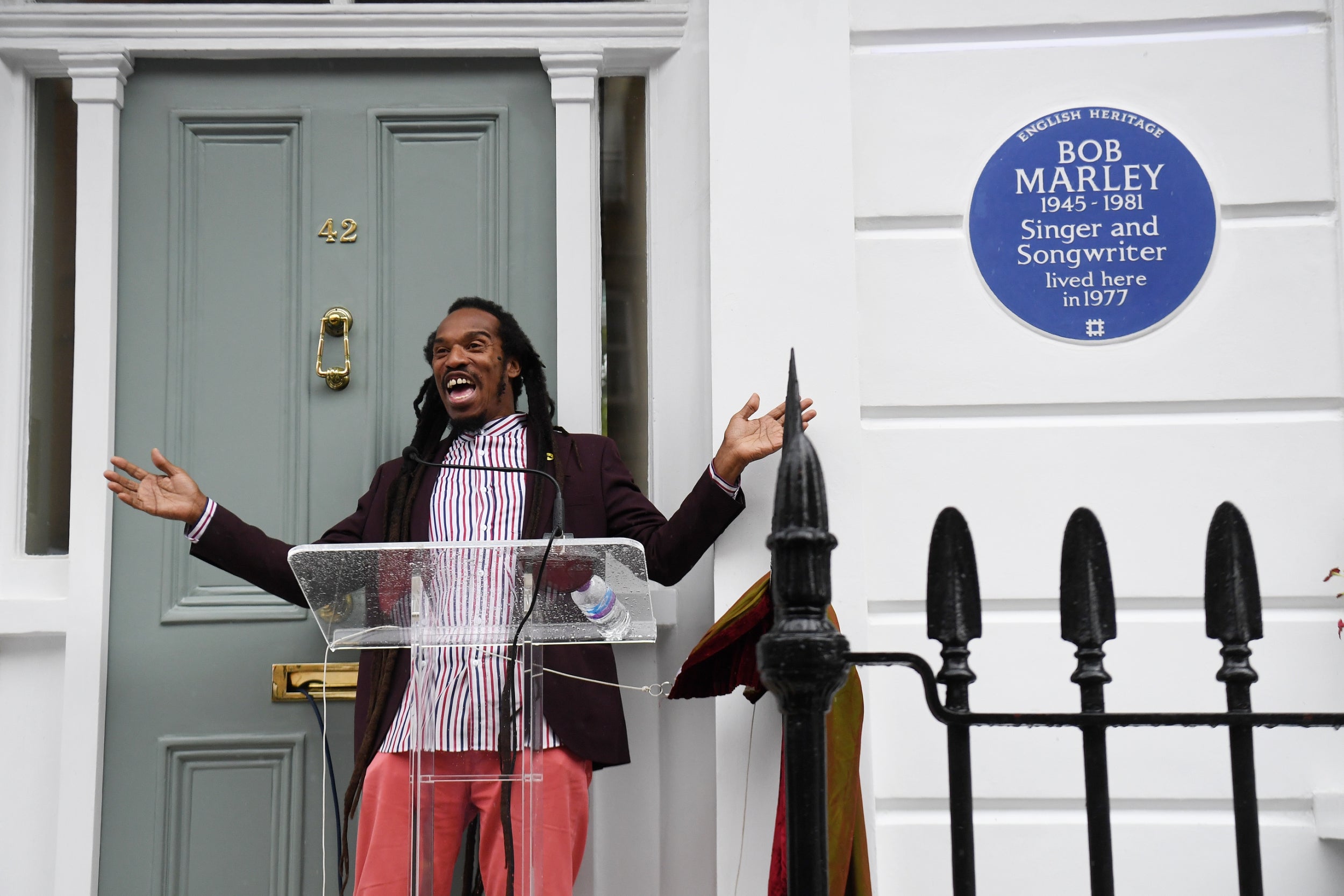
English Heritage recently established a working group to look at representation and now has a list of Bame plaques awaiting installation. Recently, the singer-songwriter Bob Marley was celebrated with a blue plaque and later this year, they are planning to unveil plaques to the Second World War secret agent, Noor Inayat Khan, and the 18th-century abolitionist, Ottobah Cugoano.
Similarly, the National Trust has been navigating a line between protecting the buildings and statues under their stewardship while at the same time attempting to tell the story of Britain in a fairer and more honest way. And the protests have already prompted direct action, with the removal of a statue of a black man carrying a sun-dial from the Dunham Massey estate in Cheshire.
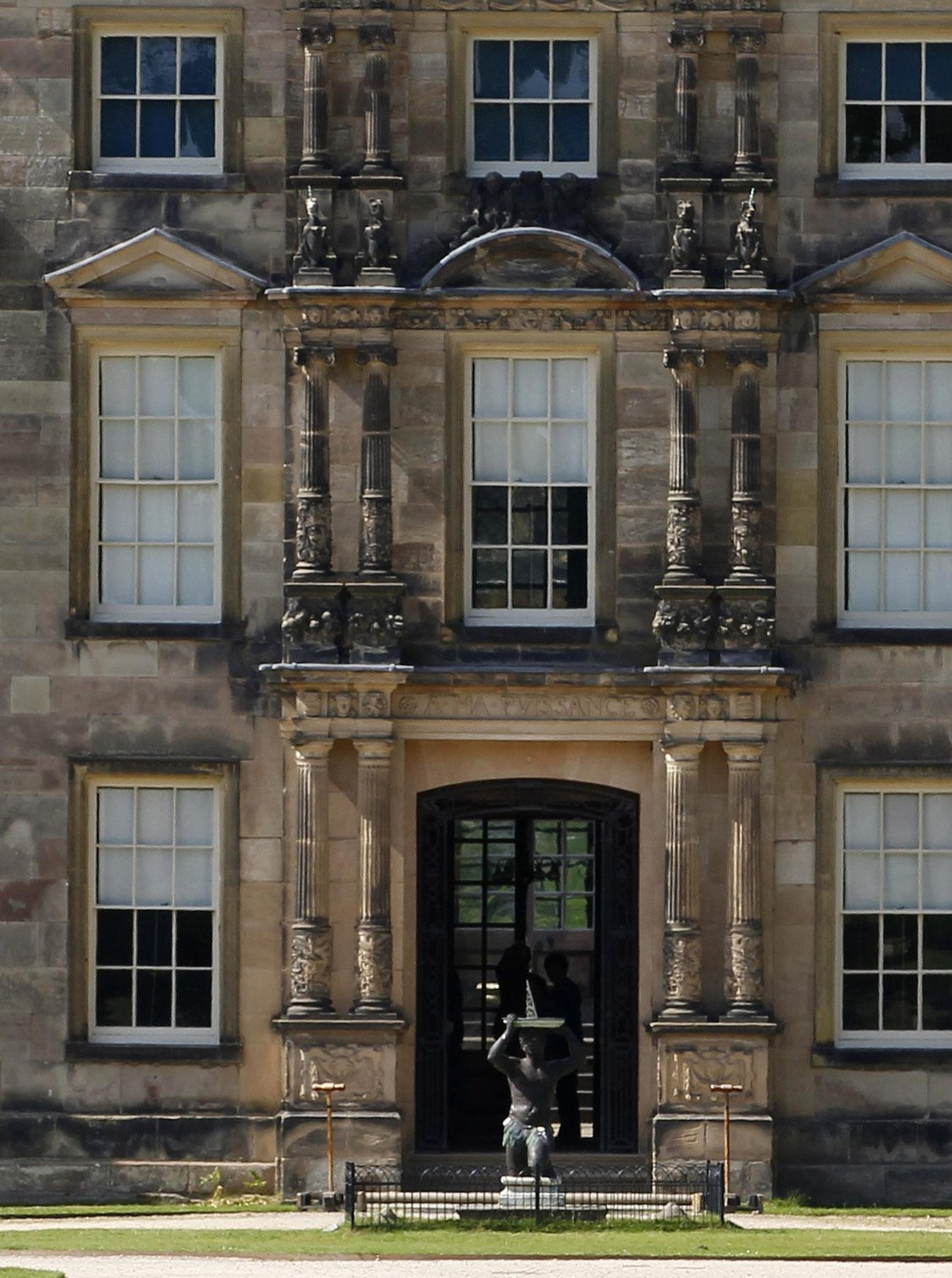
Sian Thomas of the organisation says: “We have taken the decision to move the statue that sits at the front of the house at Dunham Massey. The statue has caused upset and distress because of the way it depicts a black person and because of its prominence. We don't want to censor or deny the way colonial histories are woven into the fabric of our buildings. For these reasons, we have decided to move it safely from its previous location while we make plans to address it in a way that fully acknowledges the appalling histories of slavery and the slave trade.
“We have a long way to go but we're working to address painful and challenging histories attached to our places and collections. We are accelerating plans to assess statues, collections and places with links to slavery and colonialism and ensure they are managed appropriately. We have much more to do. The Trust looks after places that are linked to world histories in many ways and we aim to do it in a way that is sensitive and inclusive.”
Similarly, she says, the LBS project also prompted action at the National Trust. Sian Thomas adds: “Information from UCL's LBS database has been incorporated into a colonial links report produced this year by Dr Corinne Fowler (associate professor of colonial and post-colonial literature at the University of Leicester), in collaboration with Trust curators and external researchers.
“The report details the colonial links of 95 National Trust properties. It is the fullest account to date of how National Trust places connect to Britain’s four colonial centuries. We recognise the need to explore contested and sensitive stories of our places. It is crucial we explore them in a high-quality, properly researched way and embed them permanently at those places where it is most relevant.”
The protests, and the growing awareness of Britain’s role in — and profiting from — the slave trade mean that we are increasingly taking a fresh look at history and recalibrating our ideas of what actually happened and who should be honoured. The arguments still rage, though, about whether we should tear down the monuments to those who took part, or keep them in some form for historical context.
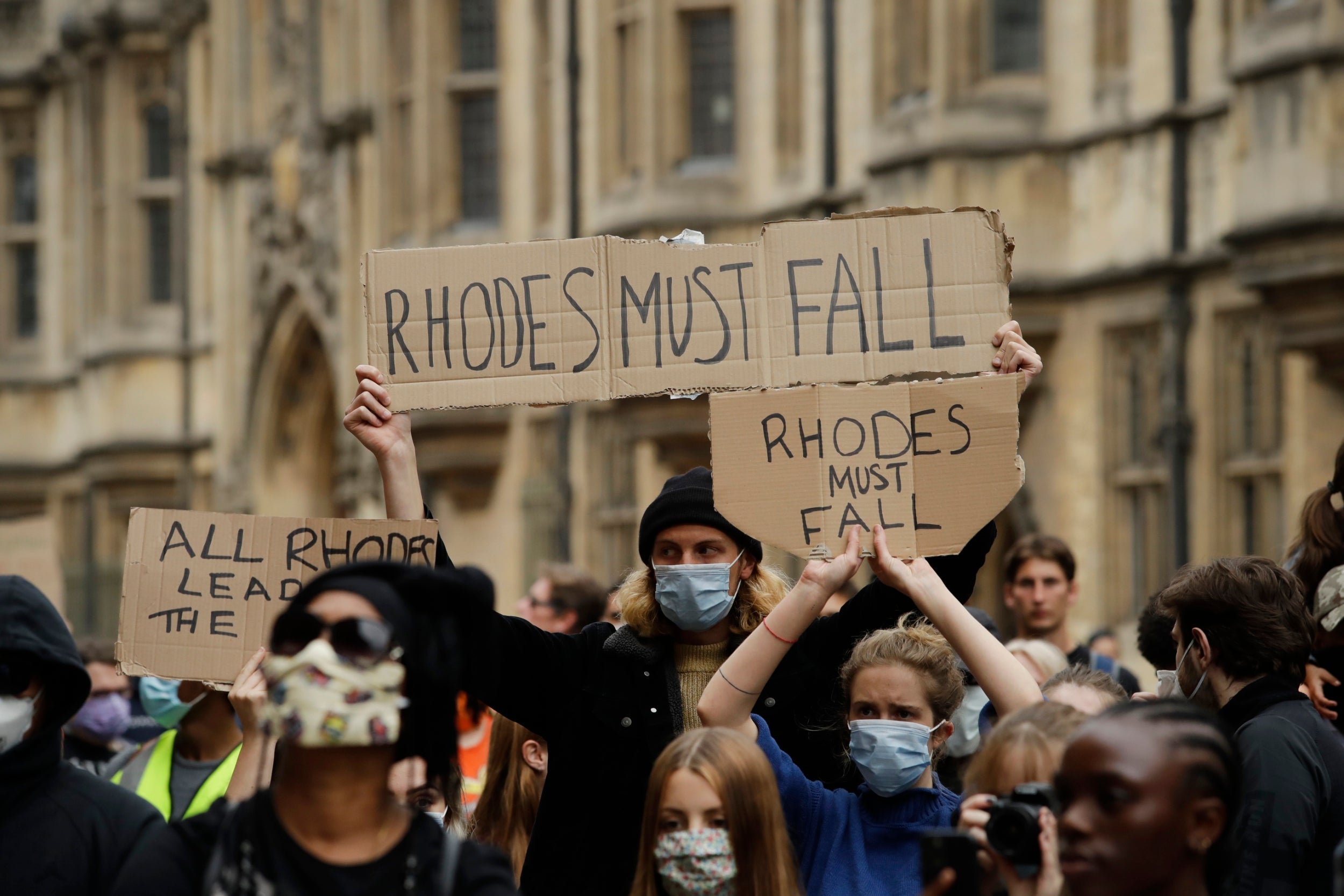
Anna Eavis of English Heritage says: “The Black Lives Matter movement has recently brought the significance and symbolism of such memorials to the fore. English Heritage recognises that commemorative monuments erected in the past may not reflect the values or perspectives of people today. We understand that those monuments associated with Britain’s colonial past are offensive to many.
“We know that we need to do more to ensure that the stories and the sometimes painful and controversial actions of those commemorated by the statues in our care are told in full.”
*To access the Legacies of British Slave-Ownership database go to: https://www.ucl.ac.uk/lbs/
Join our commenting forum
Join thought-provoking conversations, follow other Independent readers and see their replies
Comments